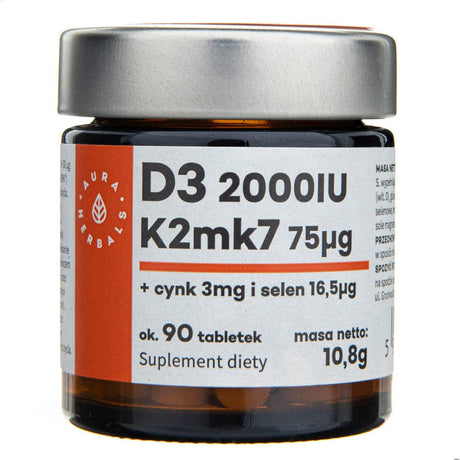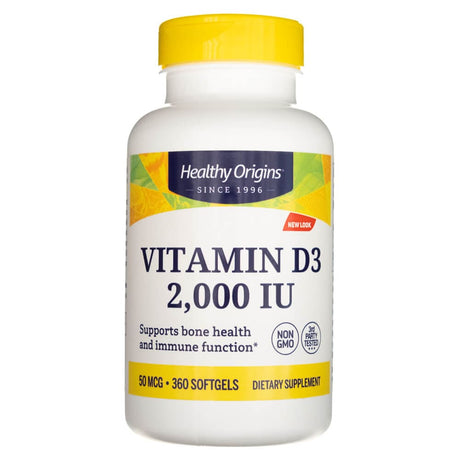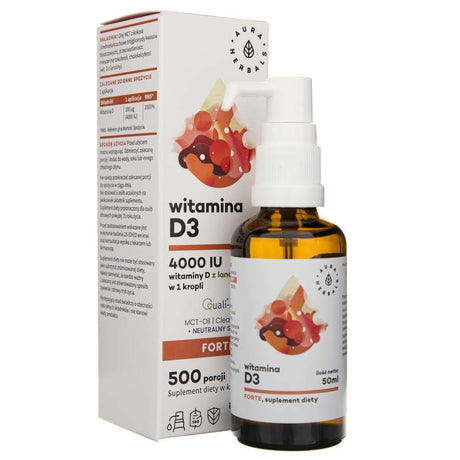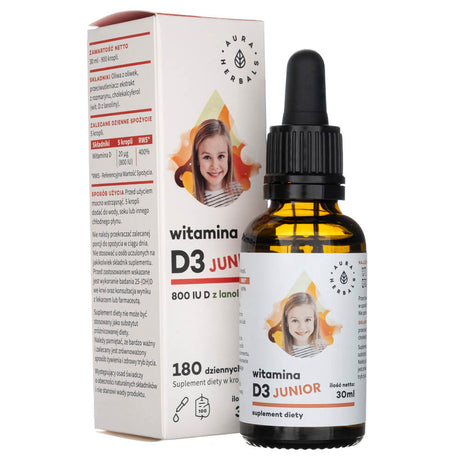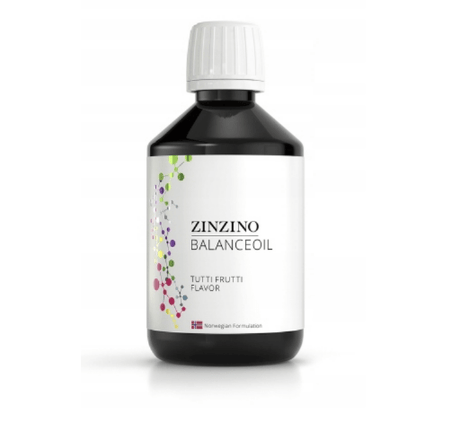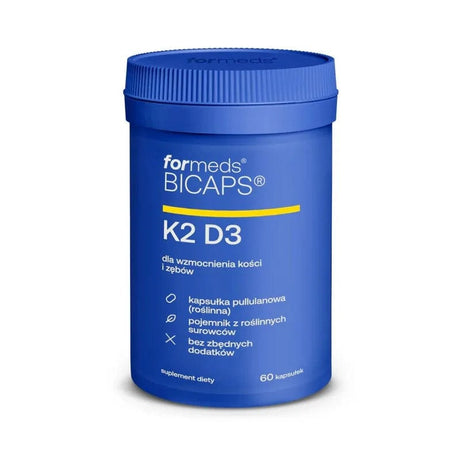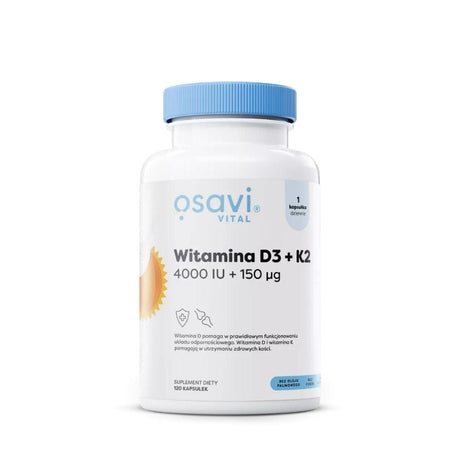Zinzino
Zinzino BalanceOil, Grapefrukt Citron Lime - 300 ml
Ordinarie pris 569.39 krPris per enhet1,897.97 kr /lEj tillgängligNow Foods
Now Foods Vitamin D3 2000 IE - 240 mjuka geler
Ordinarie pris 115.79 krPris per enhet0.48 kr /itemEj tillgängligAura Herbals
Aura Herbals Vitamin D3 2000 IE + K2 + Zink + Selen - 90 tabletter
Ordinarie pris 88.29 krPris per enhet0.98 kr /itemEj tillgängligNow Foods
Now Foods Mega D3 4000 IE & MK-7 180 mcg - 60 kapslar
Ordinarie pris 183.69 krPris per enhet3.06 kr /itemEj tillgängligHealthy Origins
Healthy Origins Vitamin D3 2000 IE - 360 mjuka geler
Ordinarie pris 164.09 krPris per enhet0.46 kr /itemEj tillgängligNow Foods
Now Foods Vitamin D3 2000 IE - 120 mjuka geler
Ordinarie pris 64.29 krPris per enhet0.54 kr /itemEj tillgängligDoctor's Best
Doctor's Best Vitamin D3 5000 IE - 360 softgels
Ordinarie pris 165.19 krPris per enhet0.46 kr /itemEj tillgängligFormeds
Formeds Bicaps Vitamin D3 4000 - 120 kapslar
Ordinarie pris 129.59 krPris per enhet1.08 kr /itemEj tillgängligNow Foods
Now Foods Vitamin D3 50000 IE - 50 softgels
Ordinarie pris 177.79 krPris per enhet3.56 kr /itemEj tillgängligSolgar
Solgar Vitamin D3 25 mcg (1000 IE) - 250 Softgels
Ordinarie pris 164.09 krPris per enhet0.66 kr /itemEj tillgängligAliness
Aliness Vitamin K2 FORTE MK-7 200 µg med Natto D3 - 60 kapslar
Ordinarie pris 146.79 krPris per enhet2.45 kr /itemEj tillgängligAura Herbals
Aura Herbals Vitamin D3 4000 IU, Droppar - 50 ml
Ordinarie pris 93.99 krPris per enhet187.98 kr /100mlEj tillgängligAura Herbals
Aura Herbals Vitamin D3 Junior, droppar 800 IE - 30 ml
Ordinarie pris 52.69 krPris per enhet1,756.33 kr /lEj tillgängligZinzino
Zinzino BalanceOil+ Omega-3 syror, Tutti Frutti - 300 ml
Ordinarie pris 573.99 krPris per enhet1,913.30 kr /lEj tillgängligZinzino
Zinzino BalanceOil, Orange Lemon Mint - 100 ml
Ordinarie pris 212.29 krPris per enhet2,122.90 kr /lEj tillgängligDoctor's Best
Doctor's Best Vitamin D3 5000 IE - 720 softgels
Ordinarie pris 291.49 krPris per enhet0.40 kr /itemEj tillgängligFormeds
Formeds Bicaps K2 D3 - 60 kapslar
Ordinarie pris 158.39 krPris per enhet2.64 kr /itemEj tillgängligNow Foods
Now Foods Vitamin D3 1000 IE - 360 mjuka geler
Ordinarie pris 114.69 krPris per enhet0.32 kr /itemEj tillgängligProgress Labs
Progress Labs Vitamin K2 MK-7 från Natto 100 mcg + D3 2000 IU 50 mcg - 120 tabletter
Ordinarie pris 72.19 krPris per enhet0.60 kr /itemEj tillgängligOsavi
Osavi Vitamin D3 + K2,4000 IE + 150 mcg - 120 kapslar
Ordinarie pris 195.09 krPris per enhet1.63 kr /itemEj tillgängligNow Foods
Now Foods Flytande D-3 & MK-7 - 30 ml
Ordinarie pris 223.79 krPris per enhet745.97 kr /100mlEj tillgängligAliness
Aliness Vitamin K2 MK-7 100 mcg med Natto D3 - 60 kapslar
Ordinarie pris 108.99 krPris per enhet1.82 kr /itemEj tillgängligAura Herbals
Aura Herbals Vitamin D3 2000 IE + K2 - 90 kapslar
Ordinarie pris 100.99 krPris per enhet1.12 kr /itemEj tillgängligSwanson
Swanson Vitaminer D3 & K2 - 60 vegokapslar
Ordinarie pris 151.39 krPris per enhet2.52 kr /itemEj tillgänglig
Vitamin D: Ett viktigt näringsämne för allmän hälsa och välbefinnande
Vitamin D, särskilt i sin D3-form, är ett viktigt näringsämne som ofta visar sig vara bristfälligt i människokroppen. Även om det kan syntetiseras genom exponering för solljus, kämpar många människor fortfarande för att upprätthålla tillräckliga nivåer. Detta gäller särskilt i regioner med begränsat solljus under höst- och vintermånaderna, vilket gör det nödvändigt att få D-vitamin från alternativa källor som kost eller kosttillskott.
Vitamin D3:s viktiga roll för människors hälsa
Vitamin D3 spelar en avgörande roll för olika kroppsfunktioner:
- Stödjer skelettet, upprätthåller en god hälsa ben och tänder
- Förebygger rakitis hos barn när det upprätthålls på rätt nivåer
- Påverkar nervsystemet, främjar vilsam sömn och känslomässig stabilitet
- Skyddar det kardiovaskulära systemet genom att minska risken för hjärtsjukdomar
- Stärker immunsystemets försvar mot infektioner
- Har TiB akteriella egenskaper, bidrar till sårläkning
Naturliga källor till vitamin D3
Förutom exponering för solljus, kan vitamin D3 erhållas från vissa livsmedel:
- Fet fisk (ål, makrill, lax, sill)
- ägg
- mjölk
- Ost
Men, att uppfylla det dagliga behovet av vitamin D3 enbart genom kosten kan vara en utmaning, och kräver ofta tillskott.
Betydelsen av vitamin D3 för barn
Vitamin D3 är avgörande för barn, särskilt under faser av snabb tillväxt. Tillskott kan vara fördelaktigt även för spädbarn för att säkerställa korrekt utveckling. Ett tillräckligt intag av vitamin D3 främjar tand- och benhälsan, och bidrar till en sund utveckling av rörelseapparaten hos småbarn.
När bör man överväga D3-vitamintillskott
Tillskott är särskilt viktigt för personer med D3-vitaminbrist, som kan identifieras genom blodprov och observation av symtom som t.ex:
- Rachitis hos barn och ungdomar
- Ben- och muskelsmärtor
- Aptitlöshet
- Sömnlöshet
- Apati, Trötthet, och humörförsämring
- Synstörningar
Förebyggande tillskott rekommenderas under månader med otillräckligt solljus, vanligtvis från oktober till mars.
Dosering och administrering av vitamin D3
Det idealiska dagliga intaget av vitamin D3 beror på kroppsvikten, och ligger vanligen mellan 2000 och 4000 IE. Äldre personer (75+ år) och ungdomar (11-18 år) kan behöva högre doser. Det är viktigt att inte överskrida tillverkarens rekommenderade maxdos.
Vitamin D3-spray
Vitamin D3-spray är särskilt populär att ge till barn. Den är lätt att använda och främjar god absorption. Många sprayer levereras med en doseringspump för exakt mätning.
Vitamin D3 Droppar
Flytande vitamin D3-droppar är idealiska för dem som ogillar att svälja tabletter. Denna form möjliggör snabbare absorption och märkbara effekter. Den rekommenderade dosen ska noggrant mätas upp på en sked för intag.
Säkerhet och användning
Vitamin D3 är i allmänhet säkert och kan användas från spädbarnsåldern. För spädbarn, välj former som inte utgör en kvävningsrisk, såsom droppar eller sprayer. Ammande kvinnor kan också använda vitamin D3-tillskott på ett säkert sätt.
Genom att förstå vikten av vitamin D3 och hur man upprätthåller tillräckliga nivåer, kan du stödja din allmänna hälsa och ditt välbefinnande. Oavsett om det sker genom kost, exponering för solljus, eller tillskott, är det avgörande för människor i alla åldrar att säkerställa ett tillräckligt intag av vitamin D3.


